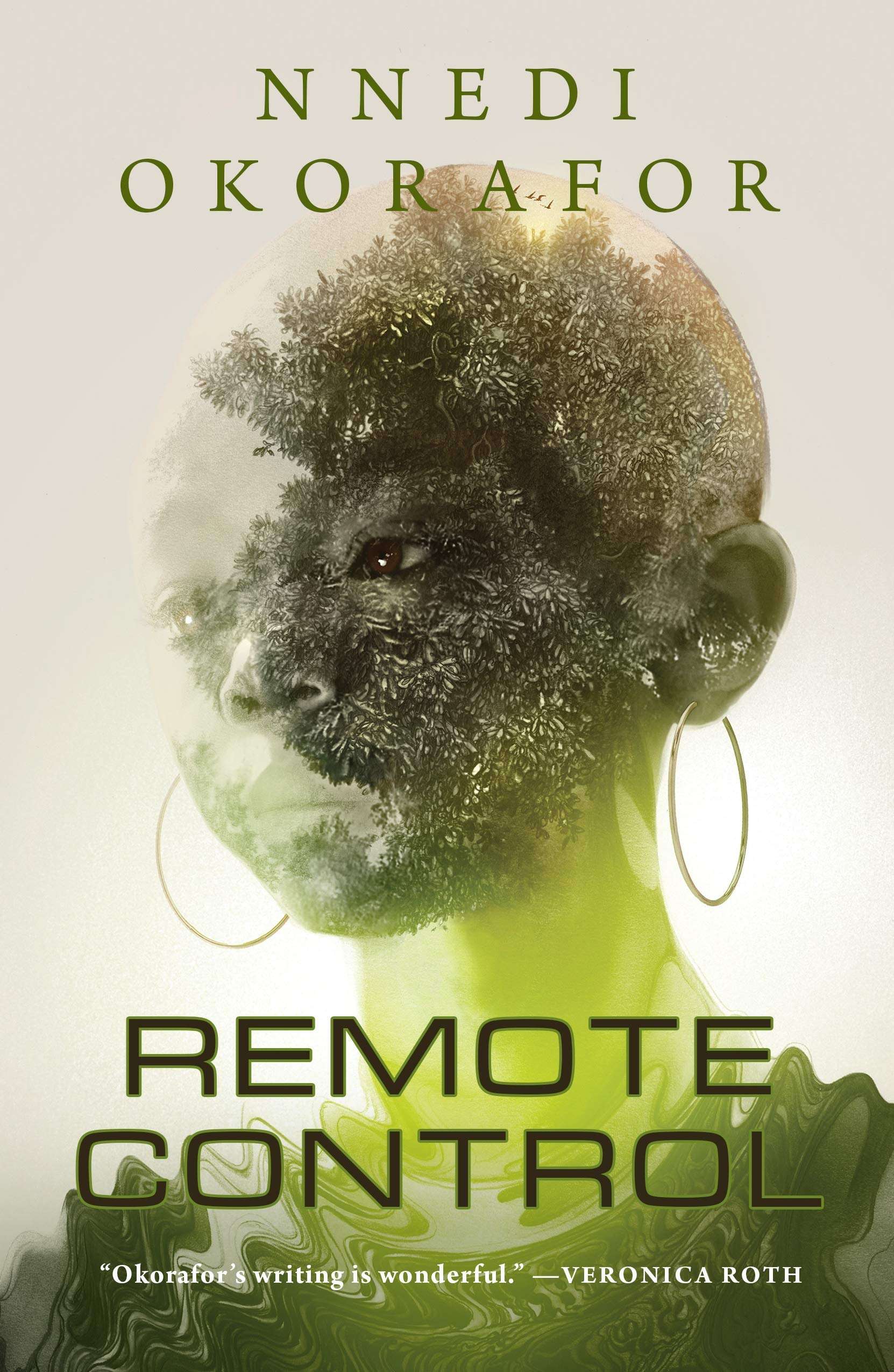Remote Control, by Nnedi Okorafor
Many reviewers call Nnedi Okorafor’s new speculative fiction novel, Remote Control, a coming-of-age story. Well, yes, and no. The protagonist of the story is indeed young, but she is not moving towards adulthood as much as unraveling the mystery of what has happened to her, how she went from a sickly youngster climbing trees in her small town in Ghana to the legend known as the Adopted Daughter of Death.
When Fatima is four, a strange meteor shower hits her village; when the young girl picks up one of the alien looking “seeds” that have fallen from the sky, it burns her, so she drops it, watching as it sinks into the ground under her favorite tree. Yet a year later it reappears, pushed up from the soil in a wooden box. The seed has a strange effect on the child, but it is not until she is involved in a life threatening accident that its full effect plays out – and Fatima’s life is changed forever. She loses her town, her family – even her name.

Now, at age fourteen, she travels the country – on foot, as her very touch causes anything mechanical to stop working – seeking answers to what she has become. Death has become familiar to her, and wherever she goes, she is both revered and feared. Known now as Sankofa, she is powerful and confident, using the legend that has grown up around her to give her freedom and subsistence, as is her right. Yet inside, she is insecure and full of questions, with nothing and no one to guide her save for her own instincts and the stories and faith with which she was raised.
Remote Control is a powerful, absorbing book, despite its brevity – a hallmark of Nnedi Okorafor’s writing. She is a master at creating complex characters and intricate storylines, yet making them essential and personal, taking the largest of themes – death, grief, fear, loss – and having them unfold gracefully through those characters and their actions. The near/potential/future worlds she builds are both advanced and ancestral, where magic and legend are both allegorical and certain. The roads she leads Sankofa down feel familiar, and yet are unique, with branching paths that lead us to places completely unknown and unexpected.
In fact, it is the unexpected within an established theme that really drew me to this story, and kept me engrossed throughout it. There are so many disparate aspects of this novel – it’s science fiction but deeply rooted in myth and legend; it hints at alien interference and corporate grasping yet stays focused on a single individual with a single purpose; its scope is huge and yet it plays out within a young girl’s walking distance. And even within these diverse threads, the way the story unfolds is not predicable – but also, not outrageous. Or it doesn’t feel outrageous. It feels… possible, in a very dreamlike way.
While the end of the book was not a cliffhanger, it definitely felt like Sankofa was at the cusp of a new venture. I for one hope there is more of this journey for Ms. Okorafor to share with us.
—Sharon Browning

